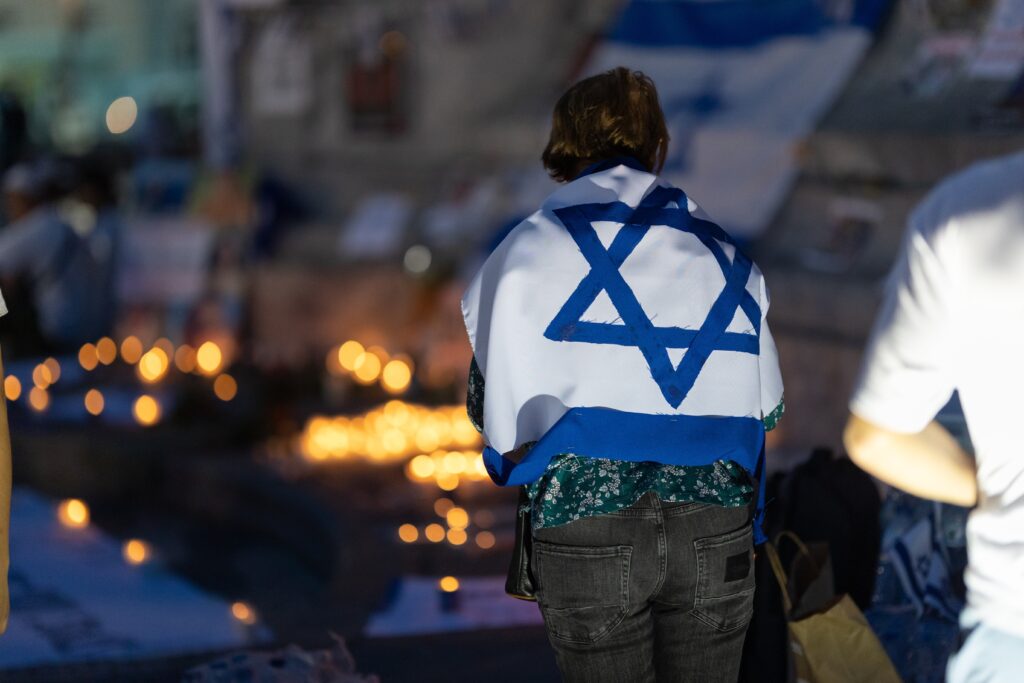IN THE MEDIA
A world of two realities
October 30, 2024 | Justin Amler

Jerusalem Post – 30 October 2024
As Israel’s war with terrorist organisations trying to destroy it enters its second year, it has become increasingly clear the world views this conflict through two vastly different lenses. In one view is a reality in which Israel is fighting for its survival against relentless threats, by antagonists who openly say they will never agree to any coexistence with the Jewish state. But there is an alternate perception in which Israel is cast as the aggressor.
This war began on October 7, 2023 when Hamas launched an unprecedented attack on peaceful communities in southern Israel. It was one of the most brutal, sadistic attacks in recent history – some 1200 innocent people, including men, women and children were slaughtered, and others brutalised and raped in terrorist acts that shocked the world. A further 251 more were kidnapped, some taken straight from their beds, often still in their pyjamas, and dragged into the terror dungeons of Gaza.
Yet, even as Israel faced this horror, the global response has often been bewildering. Instead of uniting against this evil, much of the international community has instead focussed on Israel’s military response, urging Israeli restraint and calling for a ceasefire.
Meanwhile, Hezbollah in Lebanon, Houthi forces in Yemen, and militias in Syria and Iraq, joined the fray, launching attacks on Israel in solidarity with Hamas. And at the centre of the orchestrated assault is Iran, which has long provided financial, military, and ideological support to all of these groups. Since October 7, Israel has been targeted on multiple fronts with rockets, drones and even ballistic missiles.
This is a conflict with one clear objective: to erase Israel from the map. Iran has even set up a clock in a Teheran square counting down to Israel’s supposedly inevitable demise.
Yet while Israel faces this existential threat, a perverse alternate reality is embraced by many governments, media outlets and global institutions, portraying Israel, not as a nation under siege, but as the instigator of this violence. Key Western democracies like France, Britain and Canada have even initiated limited arms embargoes against Israel in an effort to force it into a ceasefire – one which leaves the fate of Israel’s 100 or so remaining hostages in the hands of terror monsters, and Hamas almost certainly still in charge of Gaza, making preparations for the next October 7.
Even supportive allies like the United States have at times tried to limit Israel’s military action in going after the terrorists in their strongholds. US Vice President and Democratic Presidential candidate Kamala Harris warned Israel in March not to go into Rafah, because she had “studied the maps” and a humanitarian catastrophe was supposedly inevitable if Israeli forces entered the city. Israel went in, no humanitarian catastrophe occurred with residents safely evacuated, and it was in Rafah where hostages were saved and it was also in Rafah that October 7 mastermind Yahya Sinwar was found and killed.
Then there is the United Nations, an organisation rife with anti-Israel bias and even antisemitism. It’s an institution tasked with maintaining international peace and security yet has failed to issue even one clear condemnation of the Hamas atrocities. Its UNRWA “aid” organisation has been repeatedly shown to be directly implicated in terror, while its so-called “peacekeeping” force in southern Lebanon has proved to be not only impotent in carrying out its UN-sanctioned mandate, but effectively an ally of Hezbollah.
Also ignored is the role of Egypt, which shares a border with Gaza, yet this is rarely, if ever, talked about in the international community.
While Israel is falsely accused of “starving” Palestinians and denying aid, there has been almost no discussion on how it was possible for a so-called “besieged” territory to have built a sophisticated underground terror network bigger than both the New York subway system and the London Underground. If Hamas had the money, materials, technology and skills to build such a colossal, sophisticated underground infrastructure, it raises critical questions about its dependency on Israel for essential services like power and water, and the international community for healthcare, education and other aid.
Meanwhile, no country on earth would be expected to simply absorb the over 10,000 rockets launched so far by Hezbollah into Israel – destroying homes, killing dozens of people, burning forests and farms, and displacing over 60,000 residents from their homes in northern Israel for more than a year. Iran itself has launched ballistic missiles at Israel, yet these assaults are often downplayed in the international arena because of Israel’s successful defence systems such as Iron Dome. But this does not negate the intent of these rocket attacks: each one is designed to kill. Unless deterred, future attacks eventually will.
As long as the global community remains confused between these two realities – one grounded in facts, the other in distortion – this conflict will continue, and any hopes for the peace and stability all reasonable people crave will be destroyed.
Justin Amler is a Policy Analyst at the Australia/Israel & Jewish Affairs Council (AIJAC).
Tags: Hamas, Hezbollah, Iran, Israel, Middle East, Palestinians, Terrorism, UNRWA, United Nations





